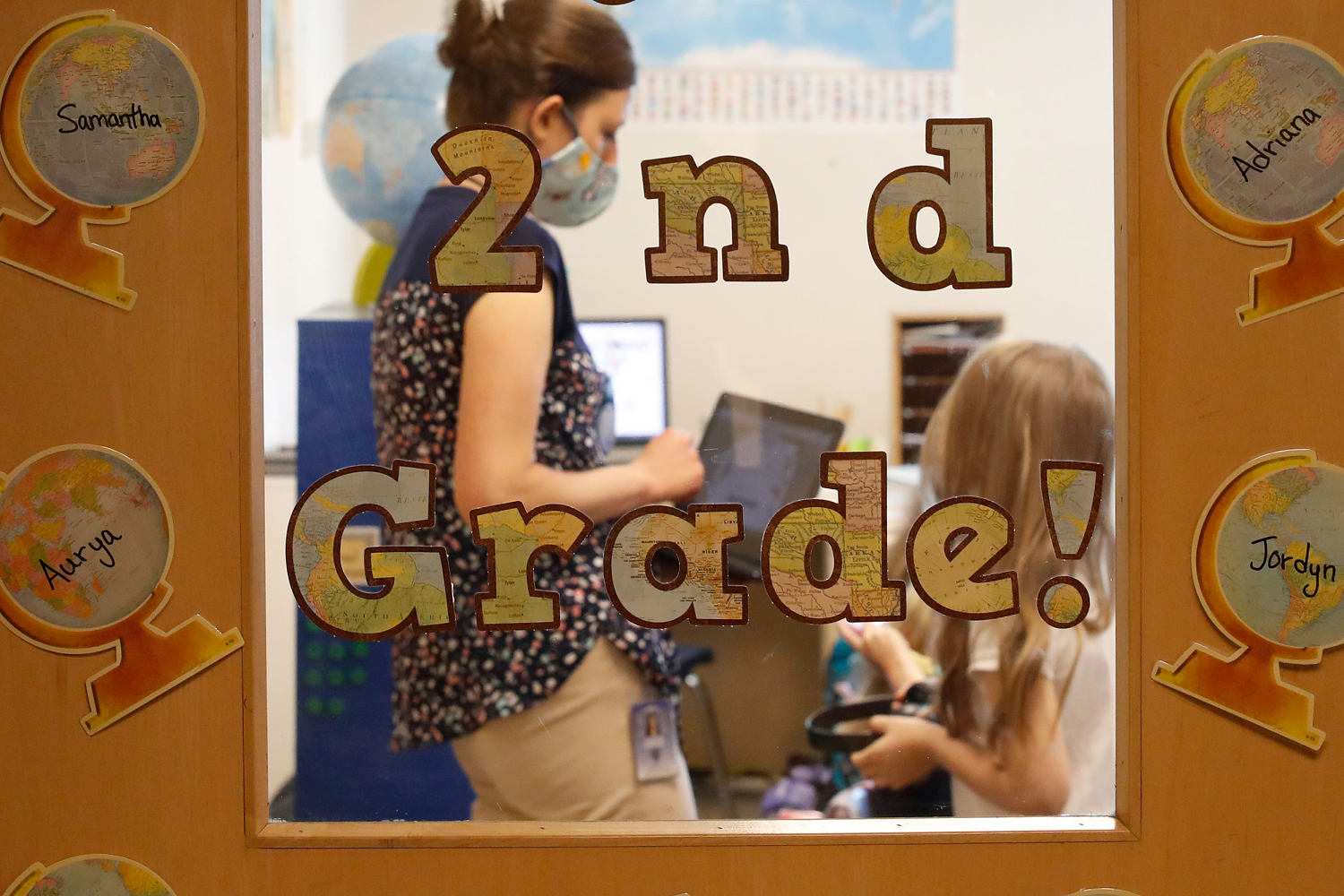
As the new school year begins across the country, public schools are struggling to hire and retain qualified teachers. Fewer young adults are entering the profession, shortages remain high — especially in hard-to-staff subjects and regions — and school staffs lack the diversity of their student populations. In attempting to fill vacancies, lawmakers in Florida, New Hampshire and elsewhere have proposed cutting corners by reducing the qualifications necessary to become a licensed teacher. But as an education policy analyst and a former teacher, I know this is a mistake. Deprofessionalizing education only compounds the harm that staffing shortages inflict on students and communities. Moving forward means addressing the root cause: lack of respect for teachers.
Teaching public school during the first years of the Covid-19 pandemic, I experienced firsthand the treatment teachers face — and it was a roller coaster of a ride. One moment we were revered as hardworking heroes who care for children’s well-being and education. The next, we were called selfish and lazy by policymakers and the press alike. The infamous phrase “those who can’t do, teach” was weaponized against us. We were called insignificant at best, and manipulative at worst.
It is simply insulting that teachers make an average of 26.4% less than professions with similar levels of education in America.
Teachers have never asked to be called heroes; we just want to be respected as experts in our field. Public perception of teachers in America plays out in the ways they’re treated, starting with salary. As any educator will tell you, they aren’t in it for the money. But it is simply insulting that teachers make an average of 26.4% less than professions with similar levels of education in America. This disparity has been growing since the 1990s, with no sign of a rebound on the horizon. For people committed to educating our nation’s future generations, this pay gap can feel like a slap in the face, neglecting both the importance of their role and the amount of work teachers devote to their craft.
Being an educator requires a level of expertise developed and maintained through high-quality preparation programs, continued professional development and experience. It demands a comprehensive understanding of child development, classroom behavior management and curriculum design and presentation. It means finding ways to connect lessons to differing learning styles, individual cultures and the community at large. And it entails building interpersonal relationships with students and helping empower them and their families to thrive outside the classroom.
All of this is to say, teachers are vital members of the villages that raise our children. They play a pivotal role in developing America’s future doctors, engineers, artists, politicians, educators and engaged community members. Some of the recent policies proposed to address teacher workforce shortages suggest that any adult is capable of stepping into a classroom, managing student behavior and effectively implementing high-quality lessons. But this couldn’t be further from the truth. Countless studies demonstrate that among all school-related factors, teacher quality has the highest impact on student achievement. It affects not only students’ academic performance, but also everything from attendance and disciplinary records to socioemotional skills like collaboration and self-regulation.
When children have an underqualified or uncertified teacher, when they’re jammed into already-packed classrooms, when their teacher receives little to no support from their district, their performance and development suffer as a result. And poor-quality education affects our nation as a whole — it weakens our economy, our national security and even our democracy.
We can’t fix the teacher shortage by insulting everyone who is a part of the profession. We have to reframe what it means to be an educator and to be respected as such. Policies that don’t stem from this core tenet simply won’t produce results that benefit our students or the future of our country.
Policymakers have to acknowledge that investing in the field of education is a worthy cause.
Instead, policymakers should close the teacher pay gap; invest in public education to equip teachers with the resources and programming to ensure their students thrive; implement high-quality teacher apprenticeship models; and support student and teacher mental health. While some may look to seemingly quick solutions, long-term investments are the real solutions that strengthen our education system.
To effectively address the challenges our teacher workforce faces, policymakers have to acknowledge that investing in the field of education is a worthy cause. Ensuring a bright and successful American future means properly educating the next generation. And to do that, we have to invest in those doing the educating — making sure they have sufficient financial and professional support; reducing barriers to entering and remaining in the field; and investing in school resources. As for the rest of us? We can help shift the narrative in our own communities and respect teachers as the experts they are.

Leave a Reply